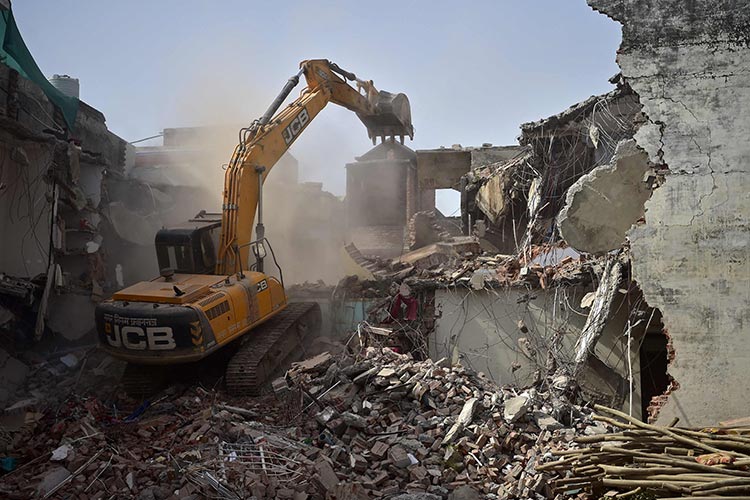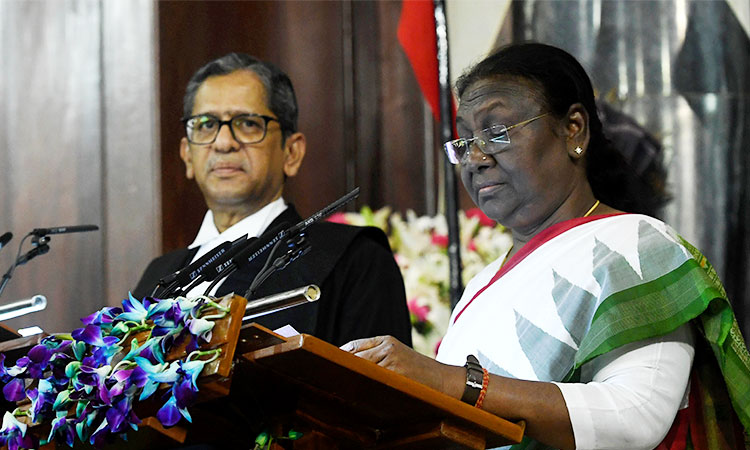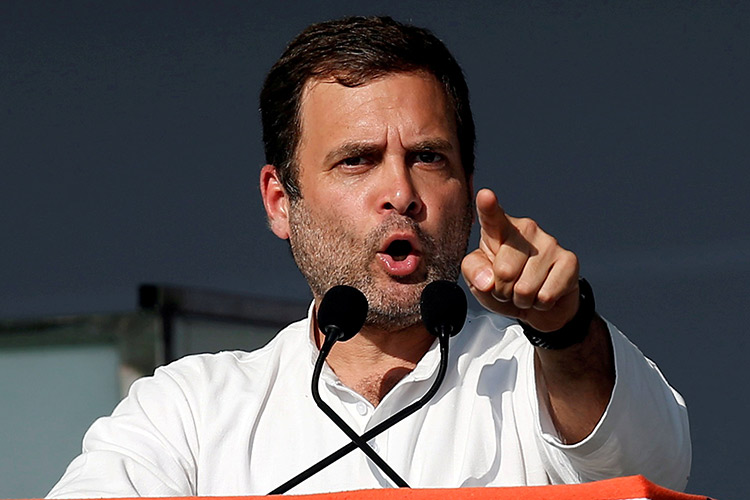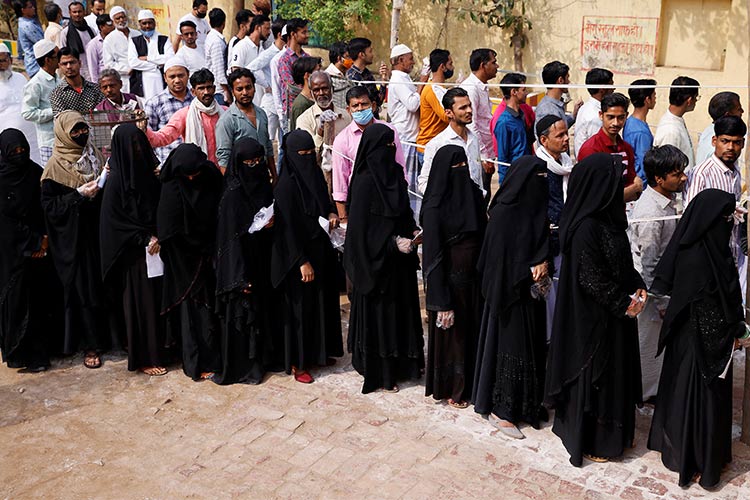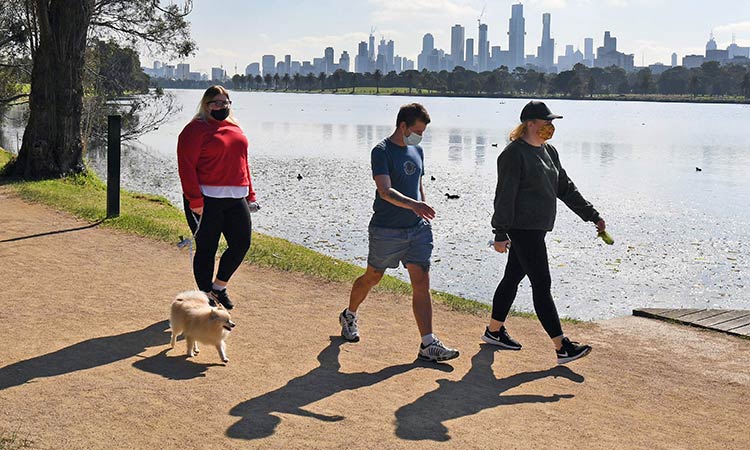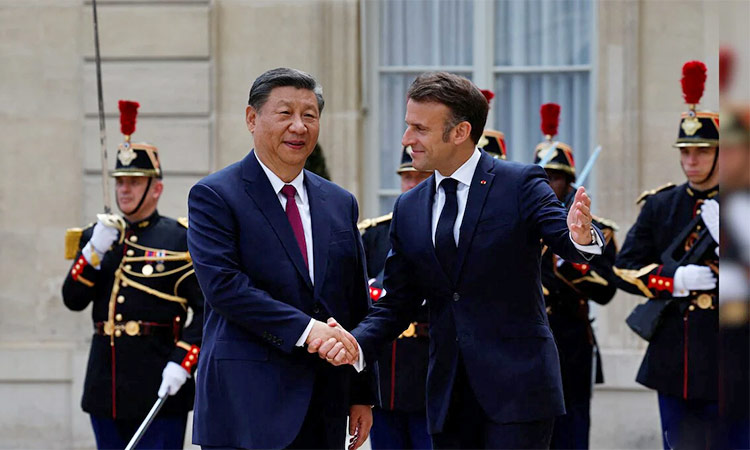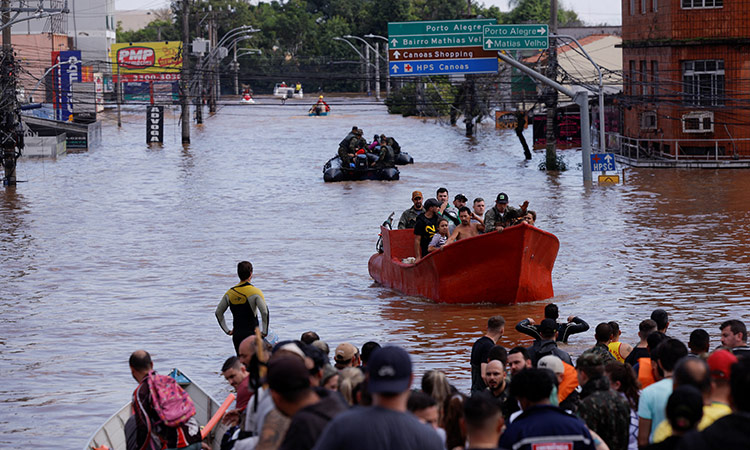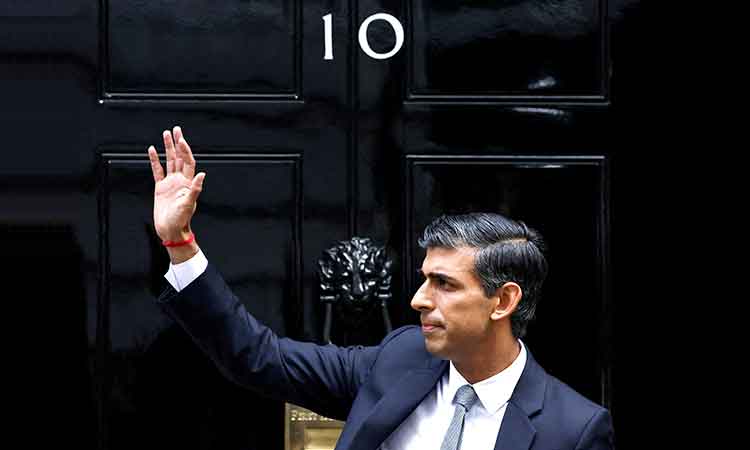An emerging world power whose voice matters
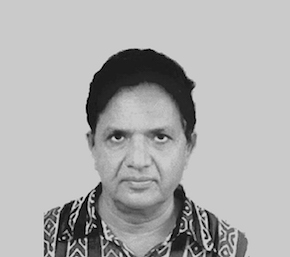
DC Pathak
The writer is a former director of the Intelligence Bureau in India.
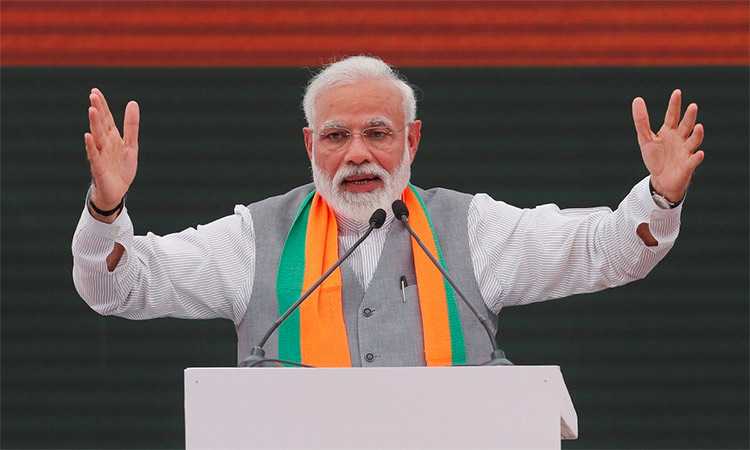
Narendra Modi gestures during a speech in New Delhi. (File)
At regular intervals, cases of public violence of the kind that demonstrated a complete lack of fear of the law, occurred in one state or the other and heinous offences against women including a girl child that should shake the conscience of the nation, threatened to become an ugly trend. A voice for police reforms was consistently raised, a debate was set in motion about the share of responsibility of the police leadership that was by and large in the hands of IPS officers and even the highest judiciary of the land had played a helpful part by laying down guidelines on the crucial matter of appointment of the Director General of Police (DGP) of the state.
In no other major country is a career in police offered — through a merit-based national level examination prescribed for the educated lot, for selecting IPS officers — in which a young man or woman was launched at the leadership level within a couple of years after the initial service training, to manage and be on the front line of the thousands of Police personnel who served the state and the district.
Maintenance of law and order is the first duty of the state regardless of the political complexion of the ruling elite and the law recognised the investigation of a cognizable crime as a sovereign function of the Police. And yet if the state machinery failed often on that front, people must wake up to the threat that this posed to the democratic system itself. It is in this context that Home Minister Amit Shah deserves a huge round of applause for tabling a comprehensive set of reforms in Parliament in respect of the basic legal framework contained in IPC, CRPC and Indian Evidence Act — in the spirit of highlighting the need for a sovereign nation like India to adopt an integral Code of law of its own, appropriately disowning any ‘colonial’ legacies and ensuring a uniform system of law and order management throughout the length and breadth of this country.
He apparently set in motion an in-depth examination of this huge task a long time ago. It is now incumbent on all Indians to take a deep interest in the future debates in Parliament whenever the proposed laws come up there for discussion. The laws have to be ‘strong’ in the first instance but their implementation also has to be just and ‘untainted’.
The police leadership has to be professionally effective to ensure that the handling of order and law both is impartial — being protective of the law-abiding citizens and capable of producing deterrence for the law-breakers. While a detailed examination of the new proposed laws would be going on, one has to appreciate the political boldness and recognition of national concern shown by the Union Home Minister, in proposing the death sentence for the rape of a minor as also for ‘lynching’ which is a crime where a mob beats an individual to death.
Moreover, considering the fact of anti-India lobbies and misuse of social media becoming an instrument of ‘proxy war’ against this country, there was an urgent need to expand the law to take care of many ‘covert’ threats posed to India in the new age we live in.
Of course, the execution of any law has to be evidence-based and if the use of digital media was made for causing subversion, fostering terrorism and inciting separatist violence, admissibility of evidence has to include digital channels as well.
There are strong laws available for dealing with hate speeches that incited communal discord but their implementation was not as prompt — one inadequacy was about the inability of the police to produce the ‘record’ of the speech as evidence.
The merit of the proposed new laws is that they cater to the developing national and international scene and fill many legal gaps in the state’s wherewithal to protect citizens against internal and external threats and thus provide a strong base for the dispensation of justice.
The creation of strong laws has to go with the exercise of reinforcing the police leadership to ensure impartial management of law and order and improve the working of police stations which are the establishment of legal authority closest to the citizens.
Officers of the Indian Police Service like the IAS, are recruited, trained and allocated to the states by the Centre and there is no reason why through mid-service orientation programmes organised by the MHA on a national basis at different Academies and the Rashtriya Raksha University (RRU) and through the instrumentality of DoP&T which kept track of the performance of both IAS and IPS an effective oversight of the Centre could not be maintained on these services for the national good.
The Centre would have a legitimate role in the appointment of DGP if the process of selection for the post prescribed that this would be made only out of the panel of three drawn by UPSC on the basis of seniority-cum-merit, in consultation with the state government. This should be pursued on a more vigorous note as this process had already been supported by the Supreme Court itself. There should be zero tolerance towards death in Police custody or the use of ‘Third Degree’ in police interrogation.
The persistent malady of police stations not registering a complaint of a cognizable offence has kept the image of police stations low in the eyes of citizens. In the CRPC, it is clearly laid down that all senior officers enjoyed the power of Station House Officer throughout their respective jurisdiction which was an affirmation that IPS officers were expected to oversee and improve the working of the police station. This unfortunately had not been achieved to the desired extent during the long existence of this service. It is a matter of great satisfaction that in the proposed new legal Code, there are provisions of Zero FIR, online receipt of complaints and admissibility of evidence recorded in digital media.
